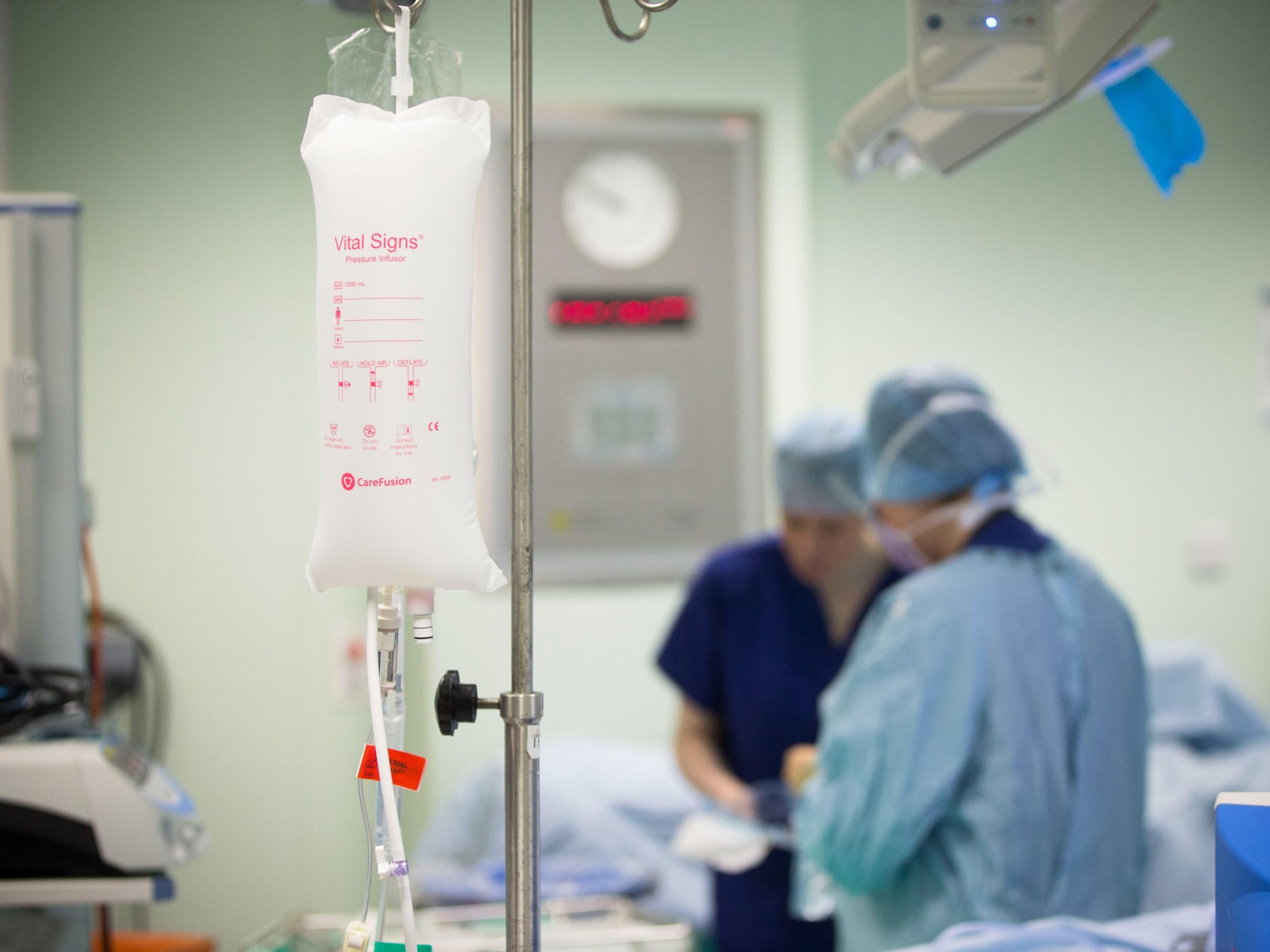NHS extends suspension of all non-urgent care as doctors warn of winter crisis
Officials estimate this could lead to up to 55,000 deferred operations

Routine hospital appointments are to be delayed to free up capacity for the sickest patients until the end of January, amid warnings of extreme pressure facing A&Es across the country.
The NHS has taken the drastic step of extending the cancellation of non-urgent operations to include thousands more minor procedures this month, amid multiple reports of NHS services struggling to cope this Christmas.
Officials have estimated that this could lead to up to 55,000 deferred operations.
The move comes as a senior NHS consultant apologised for the “third world conditions” some patients are experiencing.
Dr Richard Fawcett, a consultant in emergency medicine in Stoke-on-Trent, one of the country’s largest A&E departments, tweeted on Tuesday: “As an A&E consultant at University Hospitals of North Midlands NHS Trust I personally apologise to the people of Stoke for the third world conditions of the department due to overcrowding.”
This followed an earlier tweet saying the A&E department had already had to divert ambulances to other hospitals because of demand.
The intense pressures facing the NHS were confirmed by new guidance from the NHS National Emergency Pressures Panel (NEPP) which, before Christmas, told trusts to cancel non-urgent operations - such as cataract surgery and hip replacements - to manage winter pressures.
This temporary block has already led to tens of thousands of operations being cancelled, and has now been extended from mid-January to the end of the month.
But hospitals have now been told to cancel any day-case and outpatient procedures, which would not require an overnight bed and where patients would typically walk out after being seen.
These changes are intended to free-up "critical time" for urgent and emergency care. Specifically, the guidance says hospitals should now implement:
- Consultant-led triage at the front-door of A&E, meaning the most senior doctors will be prioritising patients as they arrive at emergency departments;
- Consultant phone support for GPs, to help advise on when a patient should be referred to hospital;
- Re-deployment of allied health professionals, such as physiotherapists, to assist with patient rehabilitation and discharge;
- "Hot clinics" and walk-in arrangements, as an alternative to A&E attendances.
Before Christmas The Independent revealed that one in five hospitals had run out of beds at some point in the first two weeks of winter.
In a further sign of the pressure on bed space, the NEPP guidance also says that penalties for providing beds for men and women on the same wards should not be enforced.
The Independent has previously shown use of mixed sex wards was spiralling, despite a Conservative pledge to abolish them.
The NEPP is chaired by former national medical director Professor Sir Bruce Keogh, who thanked staff for their work over Christmas and said: "We expect these pressures to continue and there are early signs of increased flu prevalence.
"The NHS needs to take further action to increase capacity and minimise disruptive last minute cancellations. That is why we are making these further recommendations today.”
Hospital bosses said the measures were "proportionate" to the demand, with hospitals already working flat out.
NHS Providers' director of policy and strategy, Saffron Cordery, said: "It is good to see the National Emergency Pressures Panel recognises the scale of the pressures trusts face.
“Many are dealing with unprecedented demand, reflecting the recent rise in cases of flu and respiratory illness, the impact of norovirus and – in some places – primary care including GPs working at more than full stretch.
“The response outlined in these recommendations is sensible and proportionate."
But Jonathan Ashworth, Labour's shadow health secretary, said: "Despite the heroic efforts of our fantastic NHS staff, Theresa May's reassurances have proved meaningless and hollow. Tory underfunding and cuts have left our health service more vulnerable than ever before.
"What's more, the suspension of sanctions for mixed sex accommodation breaches is just one more humiliating indication of just how shocking the downturn has become.
"As the NHS enters its 70th year, the truth is that Tory neglect has left it underfunded, understaffed and overstretched. Ministers must get an urgent grip of this escalating crisis."
The intervention comes after The Independent revealed “tragic” cases of patients being left on the floor with “serious fractures”, while nurses were being drafted in to deal with demand for ambulances.
Where a patient aged 65 or older is likely to be waiting more than an hour for an ambulance a nurse or, “in rare occasions”, a GP will now attend instead to provide pain relief and help them get up.
The North East Ambulance Service (NEAS), which operates across County Durham where nurses are now being deployed, has declared its most serious operational alert after taking more than 16,000 999 calls between 23 December and 1 January.
As well as bringing in extra clinical staff and cancelling non-essential meetings, the escalation means non-emergency vehicles are now being used to circumvent ambulance shortages.
Patients may also be asked if a family member can bring them in.
It is thought that the NEAS is the first ambulance trust to declare this highest level alert: Level four of the trust’s Resource Escalation Action Plan.
Paul Liversidge, NEAS chief operating officer, said: “Taking the decision to move the service to level four ensures we are able to protect our most vulnerable patients.”
It also follows one Northern Irish hospital which drafted in volunteers from St John Ambulance to work on wards on New Year’s Eve and New Year's Day.
Join our commenting forum
Join thought-provoking conversations, follow other Independent readers and see their replies
Comments
Bookmark popover
Removed from bookmarks